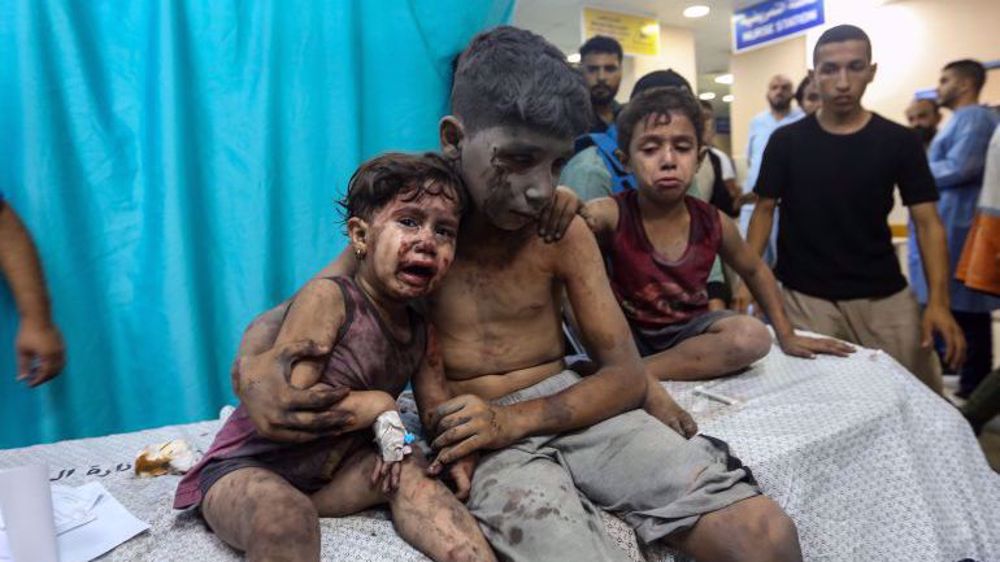Silent Echoes: Unveiling the Impact of Post-Traumatic Stress Disorder on Children in Gaza
The context of Gaza: Situated in the heart of ongoing geopolitical tensions, the children of Gaza have become unwitting witnesses to frequent conflicts, bombings, and the loss of loved ones. This environment has given rise to a pervasive and often overlooked mental health crisis, with PTSD emerging as a prevalent and debilitating consequence.
Unique Challenges:
Perpetual Exposure to Violence: Children in Gaza experience a constant barrage of violence, with the omnipresent threat of conflict shaping their daily lives. This chronic exposure contributes significantly to the development of PTSD symptoms.
Loss and Grief: The loss of family members, friends, and homes is a recurring tragedy for many children in Gaza, amplifying the emotional toll and complicating the grieving process.
Restricted Access to Resources: The blockade and restricted access to basic resources in Gaza limit the availability of mental health services, exacerbating the challenges of addressing and treating PTSD in children.
Manifestations of PTSD:
- Hyperarousal and Hypervigilance: Living in a perpetual state of alertness, Gaza's children may exhibit hyperarousal, being easily startled, or hypervigilant, as a survival mechanism ingrained in their daily lives.
- Nightmares and Sleep Disturbances: The trauma of war manifests during sleep, with nightmares and sleep disturbances disrupting the necessary rest for healthy childhood development.
- Social Withdrawal and Isolation: The erosion of a sense of safety can lead to social withdrawal, as children in Gaza may struggle to trust others, perpetuating a cycle of isolation.
Support and Intervention:
- Community-Based Initiatives: Establishing community-centered programs that provide psychosocial support, counseling, and safe spaces for expression can foster healing and resilience among Gaza's children.
- International Aid and Advocacy: Increased international aid and advocacy efforts are essential to address the mental health crisis in Gaza, ensuring the allocation of resources for mental health services and education.
- Training and Mental Health Awareness: Providing training for teachers, community leaders, and parents to identify and support children with PTSD can contribute to early intervention and the mitigation of long-term effects.
Genocide in Palestine-Gaza and the world supports or silences.
The Israeli military and border police forces are killing Palestinian children with virtually no recourse for accountability.
Israeli forces should end the routine unlawful use of lethal force against Palestinians, including children. Israel’s allies should increase pressure to end the practice.
The UN Secretary-General should list Israel’s armed forces in his annual report on grave violations against children in armed conflict as responsible for killing and maiming Palestinian children.
Children in Palestine in general suffer from abuse and killing by Israeli soldiers and settlers, with the persistent Israeli occupation and settler extremism being a primary source of distress.
The following are some of the most common types of traumas faced by Gaza children in war:
- Bombings and Airstrikes: The frequent bombings and airstrikes in Gaza, often in densely populated areas, expose children to the immediate threat of injury or death. The destruction of homes and infrastructure contributes to a pervasive sense of insecurity.
- Loss of loved Ones: Many children in Gaza have witnessed the death or injury of family members, friends, or neighbors. Coping with the loss of loved ones and the grief that follows can have profound and lasting effects on their mental health.
- Displacement and Homelessness: Families in Gaza often face forced displacement due to conflict, leading to homelessness and the loss of a stable and secure living environment for children. Displacement can disrupt their education, social connections, and overall well-being.
- Siege and Restricted Access: The blockade on Gaza has led to restricted access to essential resources, including food, water, and medical care. Children face challenges related to malnutrition, inadequate healthcare, and limited educational opportunities.
- Witnessing Violence: Children may witness violence firsthand, either directed at themselves, their families, or within their communities. This exposure to violence can lead to heightened levels of fear, anxiety, and post-traumatic stress.
- Educational Disruption: The conflict disrupts the normalcy of daily life, including access to education. Schools may be damaged or destroyed, and children often face difficulties attending classes regularly, affecting their cognitive and emotional development.
- Psychological Trauma: The cumulative effect of ongoing conflict can result in psychological trauma for Gaza's children. This trauma may manifest in symptoms such as nightmares, flashbacks, anxiety, depression, and difficulty concentrating.
- Loss of Childhood: The pervasive nature of conflict can force children to grow up quickly, robbing them of a carefree childhood. They may be exposed to adult responsibilities, stress, and experiences that no child should endure.
Conclusion: The children of Palestine-Gaza carry the weight of conflict in their hearts and minds, necessitating a collective and urgent response to address their mental health needs. By understanding the unique challenges, they face and implementing targeted interventions, we can work towards breaking the cycle of trauma, offering Gaza's children a chance at healing, resilience, and a brighter future amid the ruins of conflict.






Comments
Post a Comment